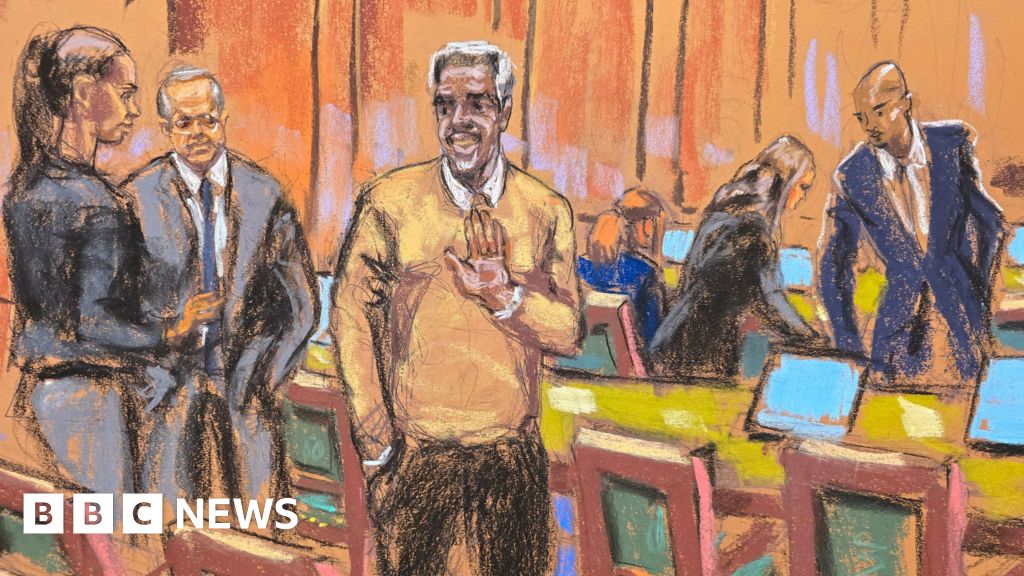Sean 'Diddy' Combs' Defence Concludes Briefly Amidst High-Stakes Trial

In a surprising turn of events, the legal team representing Sean 'Diddy' Combs concluded their defence in a high-profile sex trafficking trial after a mere 20 minutes of argumentation. This abrupt conclusion came on the heels of nearly seven weeks of intensive arguments and witness testimonies presented by federal prosecutors in New York, who wrapped up their case earlier on the same day. The brevity of the defence's presentation has raised eyebrows and sparked discussions about the strategic considerations behind such a decision.
The defence's central argument hinged on the assertion that the prosecution had not met the requisite burden of proof to substantiate the charges against Mr. Combs, charges he has consistently and vehemently denied. The defence urged the presiding judge to dismiss the case, arguing that the evidence presented by the government was insufficient. In a notable decision, Mr. Combs opted not to testify in his own defence, a choice he confirmed in court, stating, "It's my decision with my lawyers" not to take the stand.
The decision not to call any witnesses, including Mr. Combs himself, was a calculated risk. According to Mitchell Epner, a New York-based lawyer and former prosecutor, introducing new witnesses could potentially complicate the defence's position. Moreover, having Mr. Combs testify could have shifted the trial's focus almost entirely onto his personal credibility and narrative, a gamble the defence was evidently unwilling to take.
Instead, the defence submitted into evidence a series of text messages exchanged between Mr. Combs and his ex-girlfriends, including singer Casandra Ventura and another individual who testified under the pseudonym Jane. These messages were intended to support the defence's claim that the sexual encounters in question were consensual, involving willing participants. The defence argued that these interactions, referred to as 'freak-offs', were consensual arrangements rather than coercive acts.
As the trial progresses towards a conclusion, the implications of the defence's strategy remain to be seen. The decision to forgo a more extensive defence could be perceived as either a confident assertion of innocence or a risky gamble in a case fraught with complexity and public scrutiny. The outcome of this trial will undoubtedly have significant ramifications, not only for Mr. Combs but also for the broader discourse surrounding celebrity accountability and the legal thresholds for proving such serious allegations.
🔮 Fortellr Predicts
Confidence: 85%
The decision by Sean 'Diddy' Combs' legal team to rest their case after a brief defense aligns with tactical approaches observed in other high-profile cases, such as those of O.J. Simpson and Michael Jackson. This strategy, while risky, suggests a calculated confidence in the perceived weaknesses of the prosecution’s arguments. The defense's focus on highlighting consensual interactions through digital communication seeks to undermine the prosecution's narrative primarily through doubt rather than direct refutation. Given the brevity and nature of the defense, the jury is likely to be influenced by the prosecution's prolonged presentation unless the defense effectively instills reasonable doubt. If the jury perceives the prosecution's evidence as circumstantial or lacking direct proof of criminal intent, there is a reasonable probability of acquittal, reflecting historical trends in similar cases. An acquittal could result in significant public discourse about the role of celebrity influence and the adequacy of the legal process in such cases. Conversely, a conviction could lead to appeals based on procedural arguments regarding the trial's conduct, potentially prolonging legal proceedings over the coming years.